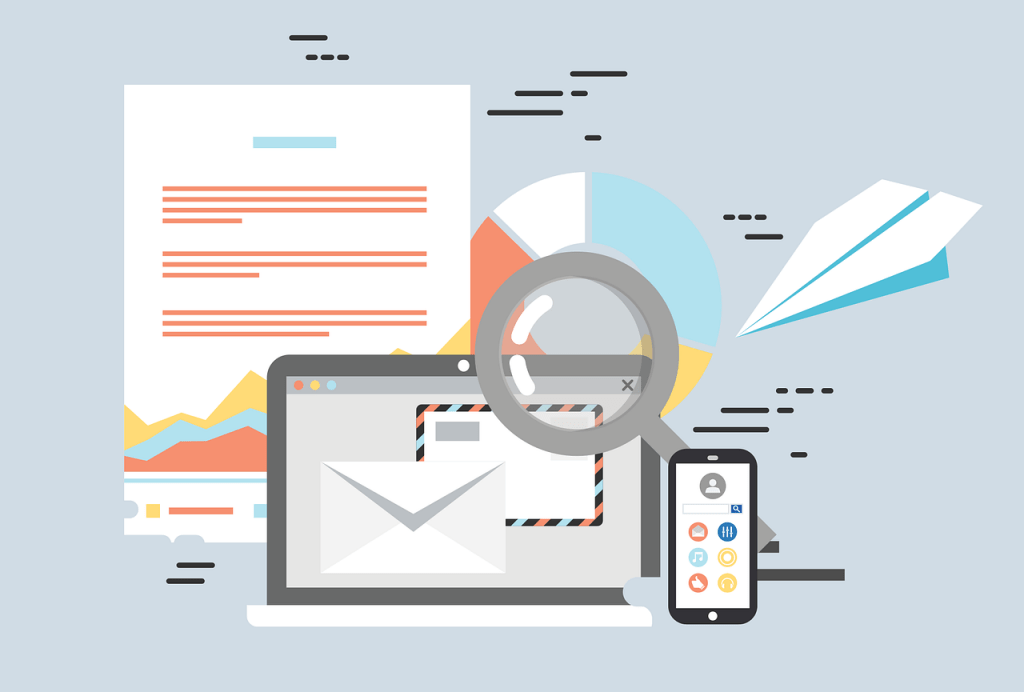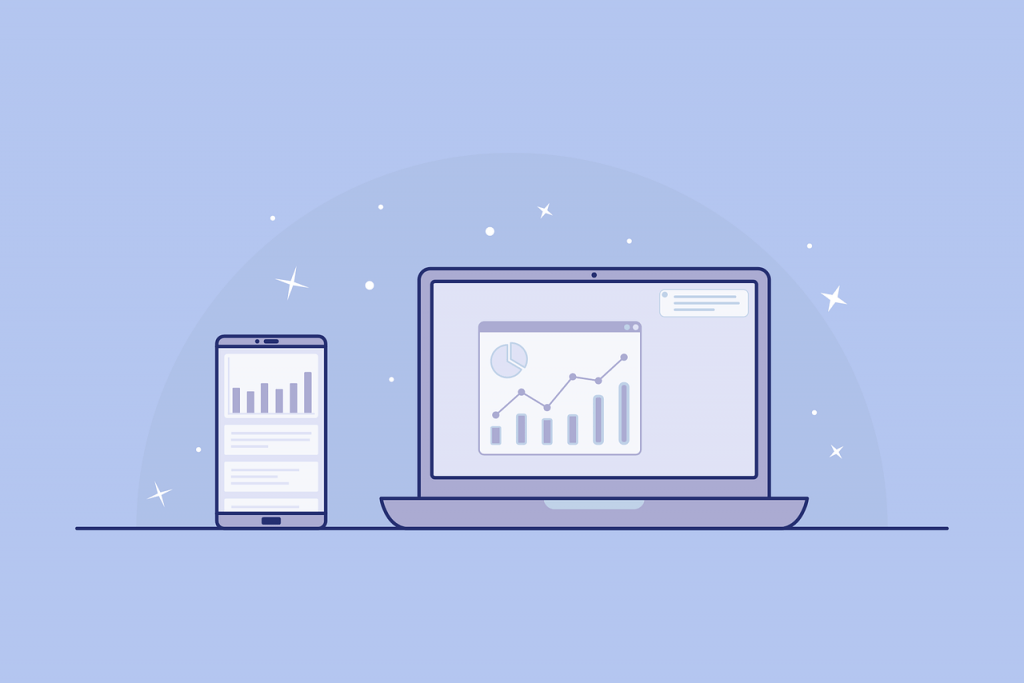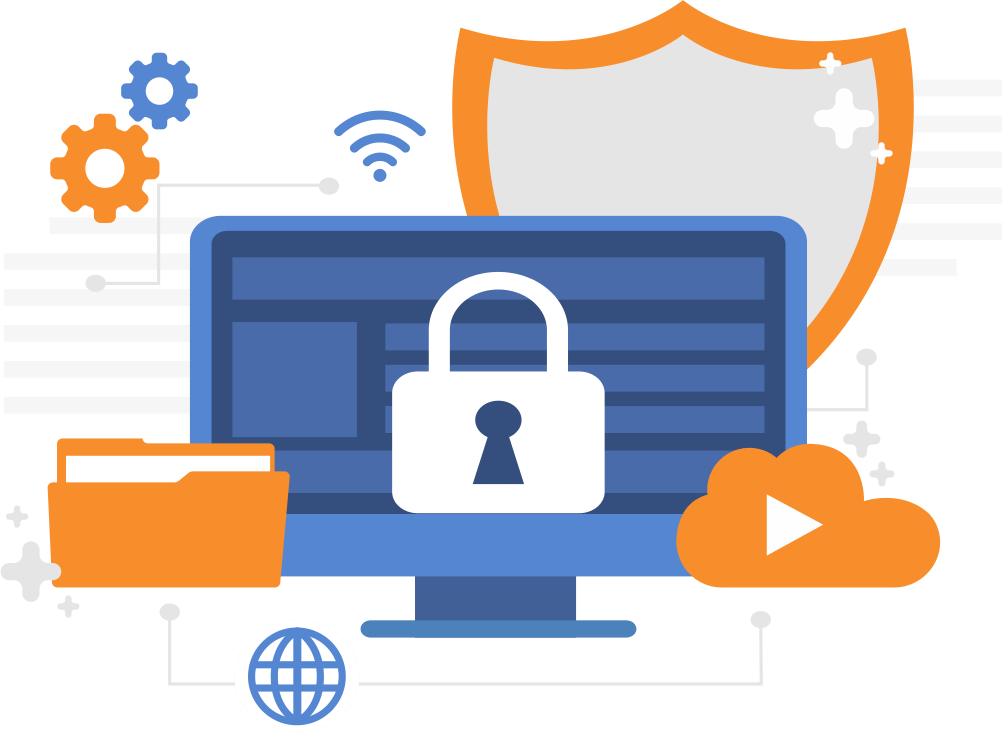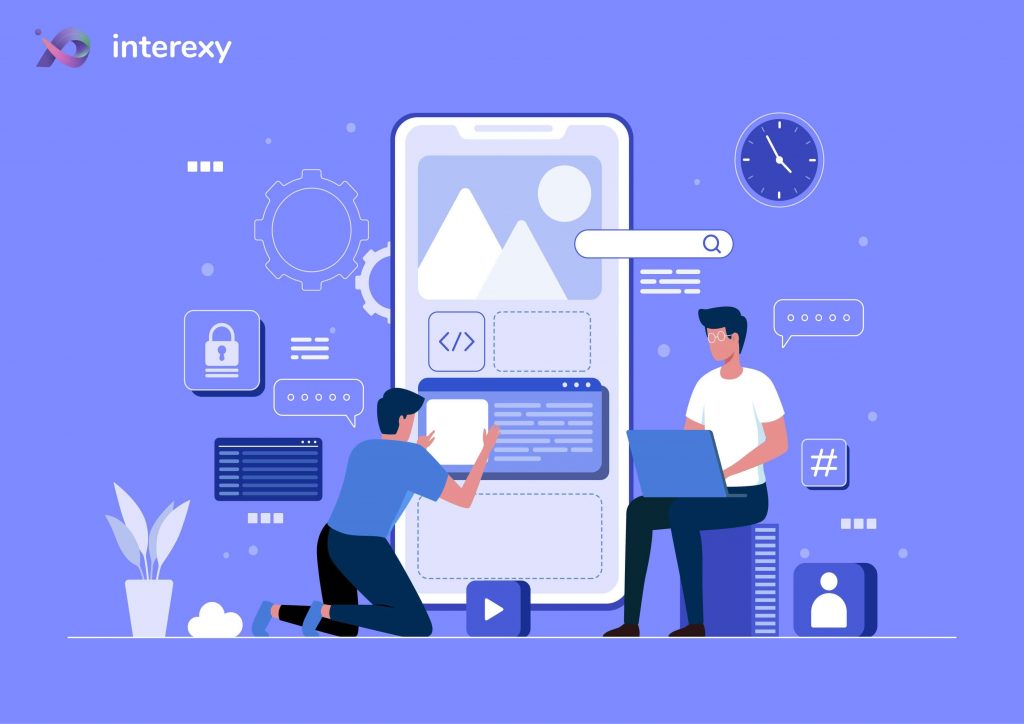November 29, 2022
The Complete Guide to Building a Successful Healthcare App
From restaurants using bots to serve customers to healthcare businesses going mobile, it’s hard to find a sector that isn’t riding the current digital wave. Many hospitals and medical institutions have seen the advantages of creating healthcare apps to provide more efficient services to patients.
Healthcare apps have experienced a meteoric rise since the start of the pandemic. According to Yahoo statistics, apps related to healthcare generate close to $280 billion USD in revenue worldwide, and this figure is expected to reach $500 billion in 2025.
This increase in revenue provides new opportunities for tech companies interest in branching out into healthcare. Therefore, let’s figure out what goes into creating a healthcare app with a company like Interexy.
Table of content
- Research current marketing trends in the industry
- Identify the target audience
- Identify the type of your future app
- Must-have features for your healthcare app
- Identify the platforms your app will support
- Privacy and Compliance issues to consider
- How to Create the UI/UX Design of Your App
- Development Stage: How to Assemble a Team of Top-level Developers
- How much would it cost to develop a healthcare app?
- Final Thoughts
- Our Experience
Research current marketing trends in the industry
Always conduct large-scale market research on current healthcare industry trends before you make your own healthcare application. Conducting market research helps to analyze the competition and figure out modern industry trends.

Here are the major trends that are shaping healthcare now:
- Contact-free consultation (Telemedicine)
Telemedicine involves using telecommunication technology to provide non-physical or remote healthcare mobile app development сompany to patients. In today’s world, consultations can be made via phone or video calls. This way, patients can still access healthcare without physically attending the hospital. - Access to instant medical assistance
Many healthcare institutions have rolled out plans to ensure that most patients enjoy instant medical assistance. People can now enjoy instant medical help without having to book a doctor’s appointment weeks in advance. - Online prescriptions and therapy sessions
Apart from gaining access to remote consultations, patients can now receive online prescriptions from the comfort of their homes. All they need to do is input the relevant information, communicate virtually with a doctor, and then get diagnosed. After that, they would get an online prescription based on their diagnosis.
Identify the target audience
Before you build a custom healthcare application, it’s essential to identify your target audience by carrying out proper research. Extensive market research allows you to determine the demographics of the target audience. This way, you can tailor the app to meet the specific needs of your audience.
Here are some core questions that should guide the direction of your research:
Who uses healthcare apps?
Even though healthcare apps are designed to meet just about everyone’s health needs, these apps are used mostly among younger, educated people. For instance, many athletes use fitness apps while younger women use apps to track their monthly cycle. However, some older people may also use these apps to gain access to better healthcare.
What common health problems can the application address?
Identifying the problems your application aims to solve is a great way to pinpoint your target audience.
For instance, if your app addresses fitness problems, your target audience will most likely be made up of athletes and people trying to get in shape.
How can the app solve problems for users of all ages?
It’s essential to identify a standard solution that your app offers to the broader market. With a proper understanding of your core demographics, create a plan to address key problems by age. For example, a fitness app should contain routines of varying difficulty based on age.
What are their preferences?
Now that you’ve identified your target audience, it’s essential to discover their preferences. Some users prefer tutorials and voice command features on their apps, while others might favor calendars and planners. But extensive market research will put everything in perspective and streamline your healthcare app’s innovation objectives.
Identify the type of your future app

What kind of healthcare application do you want to build? There are two major categories of healthcare apps: general healthcare and medically intended.
General healthcare apps are further divided into the following categories:
Health and fitness apps
Health and fitness apps cater to people who just want to improve their fitness lifestyle. These apps may offer users a wide range of workout routines and personal fitness data, like calorie intake. Basically, they help users achieve a more healthy and fit lifestyle.
One of the most popular fitness apps currently on the market is My Fitness Pal, a straightforward tool that offers its users both an exercise log and a food diary. With this app, people can seamlessly achieve their fitness goals and share their experiences with others.
Health record and insurance apps
Many patients lose crucial medical data, making it harder for doctors to assess their health status fully. Fortunately, health record apps like FollowMyHealth can make it easier for patients to store their medical data without ever losing it.
Chronic care management apps
As the name implies, chronic care management apps help patients with chronic medical conditions such as diabetes to monitor their vitals and track specific symptoms.
Pain Diary is one of the most popular chronic care apps on the market today. With this app, patients can chart pain and connect with other patients living with the same chronic condition.
Keep up with the mobile-first world!
Get in touch to build a multifunctional, user-friendly, secure mobile app for your business.
Apps for consulting and monitoring
These apps help practitioners remotely consult and monitor a patient’s medical condition and vitals without fixing an actual appointment.
An example of consulting and monitoring apps is MedKitDoc — a cutting-edge software that helps doctors deliver high-quality healthcare.
Women’s health apps
Women’s healthcare apps are specifically targeted at providing virtual healthcare services to women. These apps range from pregnancy apps to fertility and childcare apps.
A popular women’s health app currently dominating the market is Flo, a software designed to help women track their monthly cycle and fertility window.
Medication management apps
Medication management applications such as Medisafe help patients to keep track of their prescriptions. These apps can also alert or notify patients when it’s time to take their drugs.
Must-have features for your healthcare app

Once you’ve decided to build a successful healthcare app, you can now highlight the functionalities to add. Some of these features will determine how much it will cost to make a medical app. So, it is essential to focus on the key functionalities before considering other app characteristics to add.
Here are some core features that should be included in a healthcare app:
Authentication
Protecting patient data and privacy should be a primary concern in medical apps development. As such, your app should come with multi-factor authentication to protect user data.
Camera functionalities
In some cases, patients may need to have virtual consultations with doctors. Integrating camera functionalities into your app makes it easier for this to happen. Features like photo and video, OCR video procession, and complex image processing are essential additions to healthcare apps.
Social media features
Any healthcare app should come with social media features where users can receive notifications, message healthcare providers, and interact with other patients via groups and forums. Consider adding a personal profile, messaging features, push notifications, and forums to the interface.
Cryptocurrency options (create wallets, withdraw, check balance)
When developing a healthcare app, it’s essential to provide users with cryptocurrency payment options. This way, customers who don’t fancy the idea of using their credit or debit cards can easily pay with cryptocurrency.
Chats
Your healthcare app should have a chat feature to let users converse with doctors or medical practitioners about their health problems
Advanced AI algorithm
Advanced artificial intelligence algorithms can aid healthcare apps to track symptoms and give more precise diagnoses. With this feature, it would be easier for you to integrate symptom checking or health monitoring functionalities into the app.
Notification setup
Users should be able to receive notifications about their diagnosis, medical records, milestones, or health status. This way, they’d never miss a single detail.
Ready to build your very own healthcare app with these features? Reach out to us and let’s actualize your app idea. We will also estimate how much it will cost to create a healthcare app for you.
Identify the platforms your app will support

Another critical feature to consider is the type of platforms your healthcare app will support. Typically, it is advisable to develop an app that works on as many platforms as possible. Here are the platforms you should consider:
- Desktop: Making your app compatible with desktops is a great choice, especially if your target audience comprises people who use healthcare apps in their offices. Desktop apps provide users with a very smooth experience and are usually responsive.
- Mobile (Android and iOS): Mobile applications are a great choice as they offer more efficiency to users. Both Android and iOS users can easily install and update the operating system of their healthcare apps’ operating system with a single tap.
- Tablet (iPads and others): Tablets offer users more screen size and fully display the app interface’s beauty.
Privacy and Compliance issues to consider

When developing a healthcare app, it’s essential to make adequate privacy and compliance research to ensure user security. In some cases, you may need to draft patient confidentiality agreements and obtain specific certifications, such as the HCISPP.
In the healthcare sector, data leaks or breaches of privacy can harm the patient. As such, many patients are often skeptical about virtual consultations. However, a patient confidentiality agreement assures them that their data is completely safe and will not be leaked to a third party.
These facts are important when considering how to build a healthcare app that complies with current privacy and security standards.
iOS is a safer platform as Apple keeps a tight rein on its app store. Nevertheless, you can still choose safe Android platforms and safety protocols for your healthcare app.
How to build a healthcare app with a great UI/UX design
User experience is a major contributing factor to an app’s market viability and public appeal. Statistics from Adobe show that 38% of users will not use an app if the architecture is unattractive or inconvenient.
A well-researched UI/UX design can give your app the recognition it needs to become profitable.
Let’s see what a typical design process at Interexy looks like:
- Create a Professional High-Fidelity Product Design. This stage’s essence is to lay the foundation for UI/UX design and show what the final product may look like.
- Develop a clickable App prototype. Once the product design has been created, the developers create an app prototype to test the design’s feasibility and compatibility with the future app. The designers also check for bugs and glitches.
- Curate Feedback Sessions with UX/UI Designers & Development Team. In this stage, a team of UI/UX designers reviews the design to determine its market worthiness. If the team discovers issues, they send feedback to the developers to modify the feature.
Development Stage: How to Assemble a Team of Top-level Developers
If you’re ready to develop a high-end, user-friendly healthcare app, here are the development stages you will need to go through:
- Prototyping and wireframing: This stage involves designing a prototype of the target product. For a multiple-platform app, this stage helps the designers to visualize the interface on each device.
- UI/UX design: The UI/UX design phase integrates several core functionalities in the app to develop a top-notch interface with excellent responsiveness.
- Development: The main development stage involves transforming the prototype into an actual app. This is a core phase and, as such, can be a grueling experience for any developer. Therefore, focus on hiring specialists who know how to develop a healthcare app.
- Quality assurance and testing: After building a healthcare app, it’s essential to fix glitches and bugs that may hamper the user experience.
Moreover, most developers use collaborative stack technologies like Javascript, Python, and MongoDB to develop a fully functional healthcare app.
When it comes to app development, it’s vital to hire a top-notch tech company. Interexy takes each prototype through a well-crafted development process. We can also advise your developers on how to create a medical app for modern patients. This way, users can end up with an efficient and highly functional app.
How much would it cost to develop a healthcare app?
The cost of developing a healthcare app majorly depends on the developer’s rates and the complexity. Most apps with simple functionality may take developers about 800 hours to build, while more complex apps typically take about 2,000-3,000 hours.
For further insight, here’s a breakdown of the cost of developing a healthcare app based on complexity and regions:
| Country | Average hourly rate | Simple functionality | Advanced functionality |
| USA | $80 | $64,000 | $160,000 |
| UK | $55 | $44,000 | $110,000 |
| Germany | $60 | $48,000 | $120,000 |
These values listed above are the base cost of building a successful healthcare app in the regions mentioned above if you’re outsourcing. However, if you have an in-house development team, you’d end up spending less on healthcare app development.
Final Thoughts
Today, more and more patients are ditching physical healthcare for virtual health apps. As such, creating a user-friendly and secure healthcare app is a great way to provide value and gain revenue at the same time. But you need to research consumer trends to understand your audience’s needs. Most importantly, follow the necessary development stages, and hire the best experts for the job.
If you’re thinking of storming the healthcare industry with an innovative healthcare app idea, contact us for a detailed estimate. Our fully-packed telemedicine app development company in the USA is ready to cover all your needs and ideas!
Interexy is one of the leading healthcare app development companies that always ensures your product consistently adheres to and is compliant with all legal and industry guidelines. If you are looking for the information to create medical apps of any kind and complexity that stand out, get in touch with our experts!
Our Experience
We’re a cutting-edge app development partner and can deliver complex development solutions that create robust and powerful apps.
One of our major projects within the healthcare industry is MedKitDoc — a revolutionary healthcare app that dismantles the hassles of the medical sector and allows physicians & patients to connect online.
This app incorporates new cutting-edge functionalities while complying with German security standards at the same time.
We’re a custom fitness app development company ready to turn your fitness idea intro a ready-market product. Underpinned by our deep sports software development knowledge, we use the best of techs to assist you in creating, monetizing, and supporting your fitness solution. If you are looking for the information to create a user-friendly yoga and meditation app, fitness activity tracking app that stand out, get in touch with our experts!















